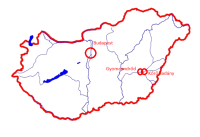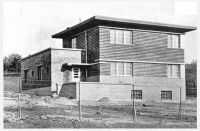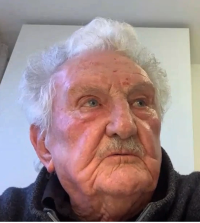“The state economy was like that, there was no one to work”

Download image
Dénes Stromszky (1933) passed his graduation at the “commercial academy”, but on the day of graduation he had to immediately join the displacement process. He lived in Kőrösladány with his family between 1951-1953. There, he supported himself and his family with various agricultural jobs. He was in good terms with kulaks - rich peasants. The relocation ended in 1953, but Dénes Stromszky still remained in Békés county, because the father of his wife at the time got a job there, and through him he was also able to get a job there. They then moved to Pest, but they were not allowed to make serious progress in life. Finally, in the 1960s, he and his wife emigrated to Munich, where they started a new life.



